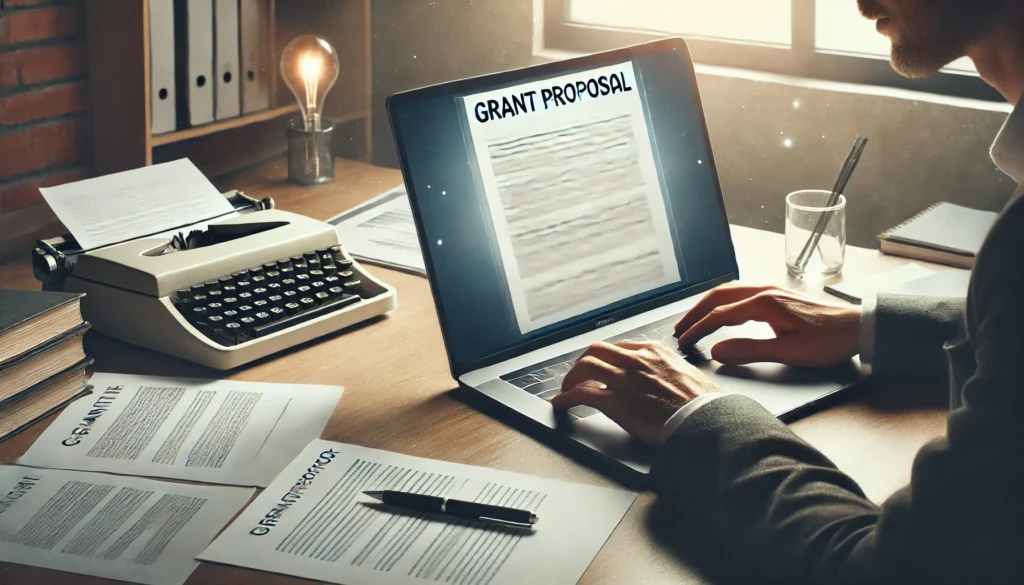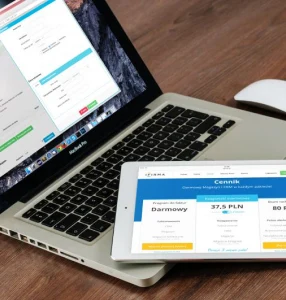Grant writing is a critical skill for organizations seeking funding to support their projects, programs, and initiatives. Crafting a compelling grant proposal can make the difference between securing necessary funds and missing out on valuable opportunities. Understanding the intricacies of grant writing, including the key elements and best practices, is essential for success.
A well-crafted grant proposal not only outlines the project’s goals and objectives but also demonstrates its potential impact and alignment with the grant provider’s mission. It requires a clear and concise presentation of the project’s purpose, methods, and anticipated outcomes. Additionally, a strong proposal highlights the organization’s capacity to effectively manage and execute the project.
This blog aims to guide you through the process of writing a grant proposal, from identifying grant opportunities to preparing, writing, and refining your proposal. By following these steps, you can increase your chances of securing funding and advancing your organization’s mission.
Understanding Grant Writing
What is Grant Writing?
Grant writing is the process of preparing and submitting a formal request for funding to a grant provider, such as a government agency, foundation, or corporation. It involves articulating the needs of your project, detailing the proposed solution, and convincing the grant provider that your project is worthy of their investment. Successful grant writing requires a blend of strategic planning, research, and persuasive communication.
Key players in grant writing include the grant seeker (the organization or individual seeking funding), the grant provider (the entity offering the funding), and sometimes a grant writer (a professional who specializes in writing grant proposals). Each of these players plays a crucial role in the grant writing process, from identifying suitable grant opportunities to ensuring that the proposal meets all the requirements and guidelines.
Understanding the fundamentals of grant writing is the first step towards developing effective proposals. This includes familiarizing yourself with common terminology, the structure of grant proposals, and the criteria used by grant providers to evaluate submissions. By building this foundational knowledge, you can approach the grant writing process with greater confidence and competence.
Importance of Grant Writing
Grant writing is essential for organizations that rely on external funding to support their operations and achieve their goals. Securing grants can provide the financial resources needed to launch new programs, expand existing services, and invest in innovative projects. For many organizations, especially non-profits and research institutions, grant funding is a vital component of their funding strategy.
One of the key benefits of grant writing is that it enables organizations to pursue projects that align with their mission and vision. By securing targeted funding, organizations can address specific needs within their communities, drive social change, and make a lasting impact. Additionally, successfully securing grants can enhance an organization’s credibility and reputation, making it more attractive to other potential funders and partners.
Understanding the importance of grant writing also involves recognizing its role in the broader funding landscape. As competition for grants increases, organizations must continually refine their grant writing skills and strategies to stand out from the crowd. By developing a robust grant writing capability, organizations can better navigate the competitive funding environment and secure the resources needed to thrive.
Steps to Write a Grant Proposal
Identifying Grant Opportunities
The first step in writing a grant proposal is identifying suitable grant opportunities. This involves researching various funding sources, such as government agencies, private foundations, and corporate sponsors. Each grant provider has specific funding priorities and eligibility criteria, so it’s important to find opportunities that align with your project’s goals and objectives.
Once potential grants are identified, the next step is to thoroughly review the grant guidelines and requirements. This includes understanding the application process, deadlines, and any specific documentation or information that must be included in the proposal. Matching your project with the grant criteria is crucial to ensure that your proposal is a good fit and has a higher chance of being selected for funding.
In addition to online research, networking with other organizations and attending grant-related workshops or conferences can provide valuable insights and connections. Building relationships with grant providers and staying informed about new funding opportunities can give your organization a competitive edge in the grant writing process.
Preparing to Write
Before diving into writing the grant proposal, it’s essential to gather all the necessary information and resources. This includes assembling relevant data, such as project budgets, timelines, and supporting documents. Collaborating with stakeholders, such as project team members, partners, and beneficiaries, can provide valuable input and ensure that all aspects of the project are accurately represented.
During the preparation phase, it’s also important to outline the structure of your proposal. Most grant proposals follow a similar format, including sections such as the executive summary, statement of need, project description, budget, and evaluation plan. Having a clear outline can help organize your thoughts and ensure that all required components are included.
Additionally, preparing to write involves setting aside dedicated time for the writing process. Grant proposals require careful attention to detail and thoughtful articulation of ideas. By allocating sufficient time for writing, revising, and proofreading, you can create a polished and persuasive proposal that effectively communicates your project’s value and potential impact.
Writing the Grant Proposal
When it comes to writing the grant proposal, clarity and conciseness are key. Each section of the proposal should be well-organized and focused on conveying the necessary information to the grant provider. Start with a strong executive summary that provides an overview of the project and its significance. This section should capture the reader’s attention and encourage them to read further.
The statement of need should clearly articulate the problem or opportunity that your project addresses. Use data and evidence to support your claims and demonstrate the urgency and importance of the issue. Following this, the project description should outline the goals, objectives, and methods of your project. Be specific about what you plan to achieve and how you will accomplish it.
The budget section should provide a detailed breakdown of the project’s costs and funding requirements. Make sure to justify each expense and show how the funds will be used to achieve the project’s objectives. Finally, the evaluation plan should describe how you will measure the success of the project and assess its impact. This section demonstrates your commitment to accountability and continuous improvement.
Tips for Successful Grant Writing
Understanding the Audience
Tailoring your grant proposal to the specific audience of the grant provider is crucial for success. Each grant provider has its own mission, priorities, and evaluation criteria. By understanding what the grant provider values, you can tailor your proposal to highlight how your project aligns with their goals and objectives. This involves researching the grant provider’s past funding decisions, reviewing their mission statement, and understanding their funding priorities.
When writing your proposal some tips are important, use language and terminology that resonates with the grant provider. Highlight the impact of your project and how it addresses the needs and interests of the grant provider. By demonstrating a clear alignment between your project and the grant provider’s mission, you can increase the chances of your proposal being favorably reviewed.
Additionally, it’s important to communicate the broader impact of your project. Grant providers are often interested in projects that have the potential to create lasting change and benefit the community. By articulating the long-term impact of your project and its potential for scalability or replication, you can make a compelling case for funding.
Common Mistakes to Avoid
One of the most common mistakes in grant writing is failing to follow the grant guidelines and requirements. Each grant provider has specific instructions for how proposals should be formatted and submitted. Ignoring these guidelines can result in your proposal being disqualified before it is even reviewed. Make sure to read the guidelines carefully and adhere to all requirements.
Another common mistake is providing too much or too little information. Grant proposals should be clear and concise, providing enough detail to support your case without overwhelming the reader with unnecessary information. Focus on the most important aspects of your project and use supporting data and evidence to strengthen your proposal.
Finally, avoid using jargon or overly technical language that may be difficult for the grant reviewers to understand. Remember that the reviewers may not be experts in your field, so it’s important to explain complex concepts in simple and accessible terms. By avoiding these common mistakes, you can improve the quality of your grant proposal and increase your chances of success.
Writing a grant proposal can be a challenging but rewarding process. By following the steps outlined in this blog, you can develop a strong and persuasive proposal that effectively communicates the value and impact of your project. Remember to thoroughly research grant opportunities, prepare carefully, and tailor your proposal to the specific audience of the grant provider.
In summary, a successful grant proposal requires clear articulation of the project’s goals, a detailed plan for implementation, and a compelling case for why the project deserves funding. By avoiding common mistakes and focusing on the key elements of a strong proposal, you can increase your chances of securing the funding you need to achieve your organization’s mission.
If you need assistance with writing your grant proposal, contact us for professional grant writing services. Our team of experts can help you navigate the grant writing process and develop a winning proposal.






